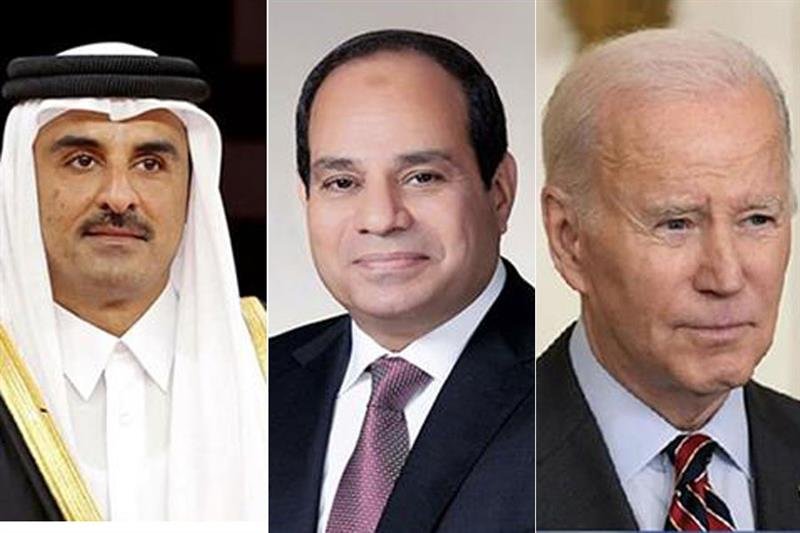The leaders of Egypt, Qatar and the United States called in a joint statement the Israeli government and Hamas to resume the ceasefire talks next Thursday whether in Cairo or Doha to close all remaining gaps and commence implementation of the deal without further delay.
“It is time to bring immediate relief both to the long-suffering people of Gaza as well as the long-suffering hostages and their families,” the joint statement said that the time has come to conclude the ceasefire and hostages and detainees release deal.
“The three of us and our teams have worked tirelessly over many months to forge a framework agreement that is now on the table with only the details of implementation left to conclude. This agreement is based on the principles as outlined by President Biden on May 31, 2024, and endorsed by UN Security Council Resolution 2735.”
The statement added that “there is no further time to waste nor excuses from any party for further delay. It is time to release the hostages, begin the ceasefire, and implement this agreement.”
“As mediators, if necessary, we are prepared to present a final bridging proposal that resolves the remaining implementation issues in a manner that meets the expectations of all parties,” Egypt, Qatar and the United States said in their statement
“We have called on both sides to resume urgent discussion on Thursday, August 15 in Doha or Cairo to close all remaining gaps and commence implementation of the deal without further delay,” read the statement signed by Abdel Fattah El-Sisi of Egypt, Tamim bin Hamad Al Thani of Qatar and Joe Biden of the United States
Egypt, along with the US and Qatar, has been mediating indirect talks between Israel and Hamas to reach a ceasefire in the 10-month-old Israeli war on Gaza, which has killed and injured 120,000 Palestinians, mostly children and women, damaged most of the infrastructure, and displaced majority of the population.
In tandem, Egypt has been leading efforts to deliver aid to 2.4 million civilians in Gaza who are facing near-starvation conditions due to a deadly Israeli blockade on the strip.
In recent days, tensions between Hezbollah and Israel, who have traded attacks across the Lebanon-Israel border since 7 October, rose to new levels after Israel assassinated the group’s top military commander Fouad Shukur in a strike in south Beirut on Wednesday.
Israel’s assignation of Hamas political leader Ismail Haniyeh in Tehran last week, a day after the strike in Beirut, exacerbated tensions between the two countries to new levels with the Iranian regime vowing to retaliate against Israel in a major way.
This prompted the US and other Tel Aviv allies to mobilize to defend Israel.
Moreover, various governments have called on their nationals to evacuate Lebanon, and many airlines have cancelled flights to and from Lebanese and Israeli airports.
Meanwhile, the Houthi militias continued targetting all Israel-linked vessels in the Red Sea, disrupting navigation and commerce in the vital international waters.
Source: Ahram Online



